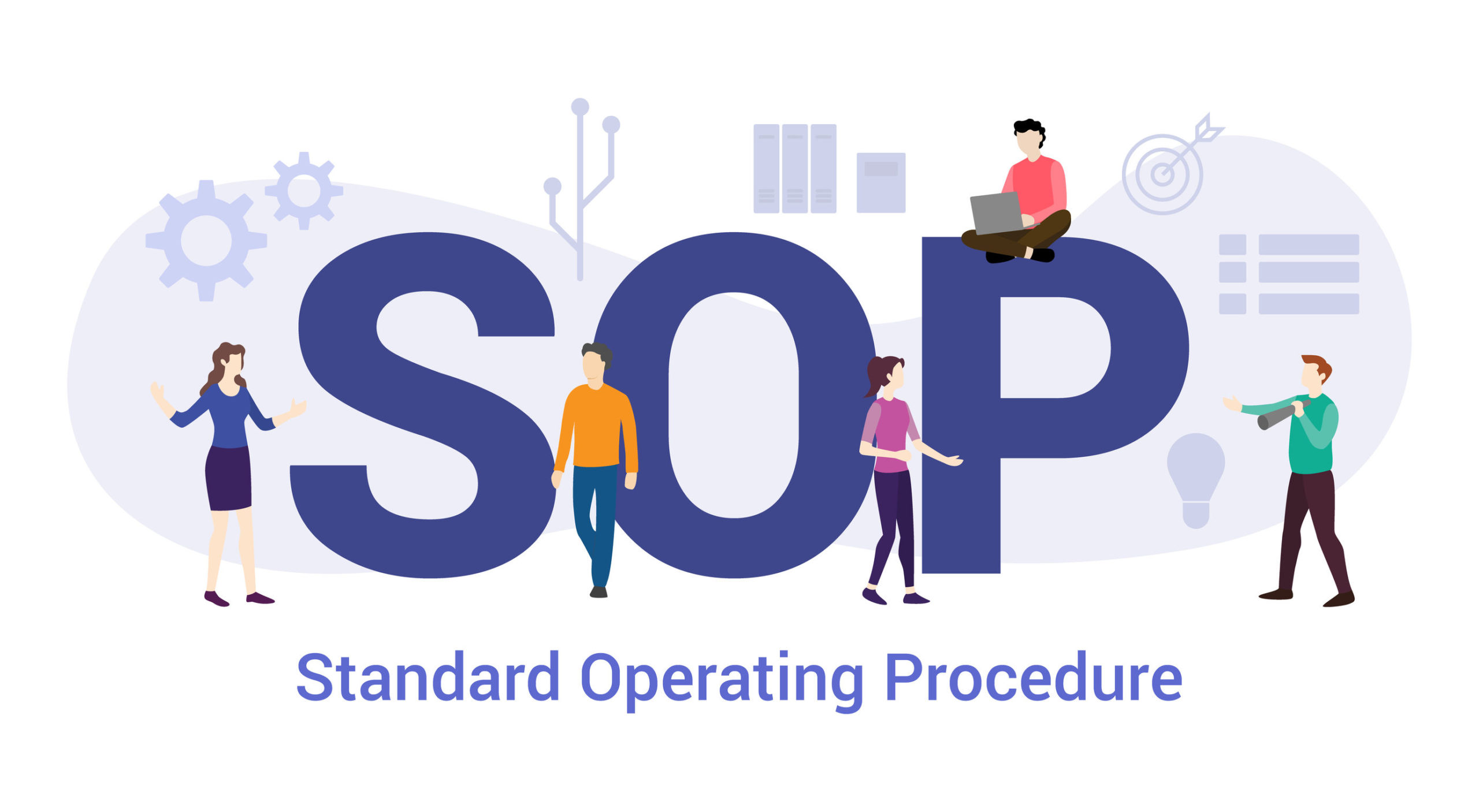
Running a successful power washing business doesn’t just come down to owning the best pressure washer or being great at removing grime. The real secret to sustainable growth? Systems.
At the heart of those systems are SOPs—Standard Operating Procedures.
If you’re looking to grow your power washing business, scale with consistency, and eventually hand off day-to-day operations without stress, this article will break down exactly why SOPs are critical, how to create them, and what areas of your business should be documented. 💥📈
🧠 What Are SOPs, and Why Do They Matter?
SOPs are detailed, written instructions for how to perform every major task in your business. Think of them as “how-to” playbooks for everything—from booking a job to cleaning a roof.
Here’s why they matter:
✅ Consistency – Every client gets the same quality service.
✅ Efficiency – Your team wastes less time guessing what to do.
✅ Training – New hires can learn faster and with fewer mistakes.
✅ Delegation – You don’t have to micromanage.
✅ Scalability – You can open a second crew or location without chaos.
📌 Think of SOPs as the backbone of a real business—not just a one-person hustle.
🛠️ What Should You Create SOPs For?
You don’t need to write everything at once. Start with the core processes in these key areas:
1. 🧽 Power Washing Services
Each surface has its own technique. Create an SOP for:
- House washing
- Concrete cleaning
- Roof washing
- Deck and fence cleaning
- Rust removal or stain treatment
Example:
“SOP – Concrete Driveway Cleaning”
- Inspect for cracks or damage
- Apply degreaser evenly
- Use surface cleaner in straight lines
- Rinse edges with wand
- Apply post-treatment sealer (if applicable)
- Take after photo and confirm with client
2. 📞 Office & Admin
How are calls answered? Quotes sent? Invoices handled?
SOPs here might include:
- Phone scripts
- Voicemail follow-up timeline
- Email templates for quotes
- Invoice generation and reminders
- Weekly bookkeeping tasks
🧾 These keep your back office running smooth—whether it’s you or an admin doing the work.
3. 🚚 Vehicle and Equipment Checks
Downtime kills productivity. Create a checklist for:
- Morning setup (hoses, gas, chemicals, safety gear)
- Equipment inspection (nozzles, pumps, filters)
- Maintenance logs (weekly and monthly)
- Load-out and secure checklist before leaving site
✅ SOPs here ensure no job is delayed due to missing gear.
4. 🧑💼 Employee Onboarding and Training
Train everyone the same way:
- Day 1: Safety protocols + job shadow
- Week 1: Ride-alongs and hands-on training
- Week 2+: Gradual transition to independent work
Include:
- Uniform policy
- Customer interaction expectations
- Use of CRM or job tracking apps
💡 With SOPs, your techs represent your brand the way you want.
5. 💰 Sales and Quoting
Don’t reinvent the wheel each time. Create SOPs for:
- Measuring square footage
- Surface-based pricing formulas
- Offering upsells (gutters, sealing, etc.)
- Delivering estimates (in person or digital)
- Follow-up timing and method
📊 Consistent quoting leads to more closed jobs and accurate profits.
6. 🤝 Customer Experience
Delight every customer with systemized excellence:
- Pre-job reminder emails/texts
- Arrival window and technician intro
- Job completion walkthrough
- Requesting reviews
- Sending thank-you follow-ups
⭐ SOPs here turn one-time clients into repeat and referral machines.
📄 How to Create Your First SOP
- Pick a task – Choose a high-frequency or high-impact activity.
- Do it yourself while documenting – Record step-by-step actions.
- Break it into stages – Use checklists or numbered instructions.
- Add photos or screenshots – Visuals improve clarity.
- Test it – Have someone follow it to see if anything is missing.
- Store it – Use Google Docs, Notion, Trainual, or Jobber to save and share it.
✍️ Start simple. You can always improve it later.
📚 Tools for SOP Documentation
- Google Docs or Sheets – Easy, shareable, free
- Notion – Great for centralizing operations
- Trainual – SOP-specific platform built for teams
- Jobber – Field service management with task documentation features
- Trello or ClickUp – Task-based SOP checklists with drag-and-drop
🧰 Whatever tool you use, just make it easy to find, follow, and update.
💬 When and How Often Should You Update SOPs?
- When you buy new equipment
- When you hire or lose employees
- When a process changes
- After customer feedback or complaints
- Every 6–12 months as part of an operations review
🧼 Keeping your SOPs fresh ensures they’re always useful—not just documents collecting dust.
🚀 Final Thoughts
If you’re serious about growing your power washing business—especially if you plan to expand, hire, or exit someday—SOPs are non-negotiable.
They:
- Save time
- Ensure consistency
- Enable delegation
- Build real business value
Even if you’re a one-person operation today, start building SOPs now. Your future self—and your future employees—will thank you. 🙌💦
Browse Amazon Here For Top Rated Power Washers And Accessories






